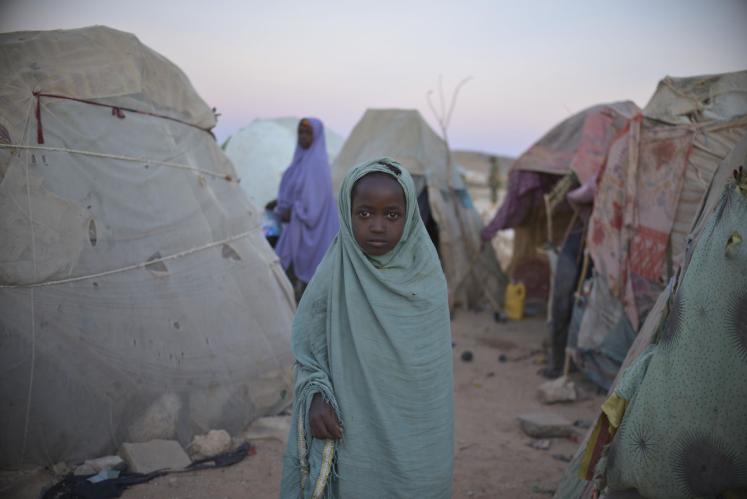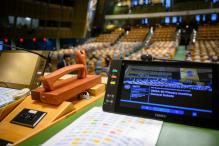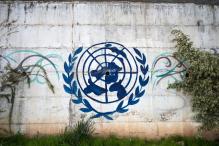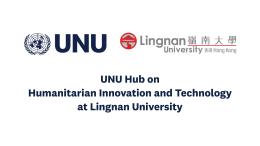Antoine Gérard has just been appointed the new chief of the Secretariat in charge of preparing the World Humanitarian Summit, scheduled to take place in early 2016 in Istanbul. He has a tough job ahead of him if that Summit is to deliver anything substantial. While the UN’s Emergency Relief Coordinator, Stephen O’Brien, has claimed that he expects “bold commitments to improve aid” there has been a growing storm around the WHS Synthesis Report and process. CARE observed, “There are no big new ideas here.” Médecins Sans Frontières suggests that it appears reform is off the table, and asked if the focus on technical fixes would “add up to the agenda for change that Ban Ki-moon was striving for”. Meanwhile, Southern NGOs see “a Western, international dominance determined to maintain itself – while paying lip service to the idea of localization.”
With apologies to my many friends on the WHS team, who have worked incredibly hard to listen to thousands of voices, the NGOs are right. The report mirrors the best and worst of the process. It is inclusive…and very very long. And in seemingly reflecting every word said during numerous rounds of regional consultations, it sacrificed coherence and focus on a clear set of achievable outcomes that would bring badly needed reform to a humanitarian system under great stress.
In May, I noted from the consultations that “the most conservative group appears to be senior-level aid officials from donor countries – many of whom fear that the system would stop working if changed in any way.” Based on this we urged the WHS Secretariat to collate ideas, offer a vision, and take it straight to the political level for action. But the report is scarce on specific proposals and fails to describe, in clear and digestible language, what future humanitarian response could look like. It does not propose outcomes which offer the right hooks for Member States to make “bold commitments” in order to deliver.
The next formal stage in the process is a Report of the Secretary-General. No one can plausibly expect the SG Report to offer big ideas that are not in the synthesis report; it is difficult for an SG Report to table ideas that haven’t previously been floated as trial balloons by predecessor reports or independent panels.
So what can the new director of the WHS Secretariat do to salvage the process in the next 12 weeks? In our opinion the WHS team must put forward clear ideas, expressed in the form of explicit outcomes, to help focus the pathway forward. At the same time, the discussion on the WHS must be moved to a serious political conversation among decision-makers. How?
Appoint a high-level special envoy
Mr Gérard should work closely with the Executive Office of the Secretary-General to, in the next ten days, have a high-level Envoy for the WHS appointed who would have access to the senior political level in key capitals. Such an Envoy should focus his or her efforts on key objectives and tasks outlined in the simple Terms of Reference proposed here.
Terms of Reference for the WHS Envoy
(1) Objective:
-
Secure support, at the highest political levels, for real change at the WHS in Istanbul, 2016.
(2) Tasks:
-
Meet with as many Ministers for Development Cooperation/International Development of supporters of the UN’s Central Emergency Response Fund (CERF) as possible in the next 60 days.
-
Establish three inter-continental groupings of Ministers willing to work together to deliver a humanitarian system that can achieve clearly specified, transformative outcomes, by the WHS. An ideal example might be to have Brazil, Kenya, and the UK to come together around an objective such as “radical transparency in all humanitarian expenditure” or South Africa, India, and Germany around “formal adoption of the principle that international assistance is the last resort, and that 60% of humanitarian staff, and funds should be devolved to the regions by 2020.”
That’s it. The Envoy should have no tasks other than pure politics. To deliver, the Envoy needs to be a political consensus builder. An ideal person, in my opinion, would be a respected former Special Representative of the Secretary-General who understands the difficulty of reform but has moral weight. Ameerah Haq might be an example. Antonio Guterres would be another strong candidate if he were to step down in time, as he has moral stature. Kofi Annan – if he would accept – might be ideal. In short, it must be someone who has the right amount of political heft.
Produce public scenario papers
The WHS team, between now and the 15th of December (or the release of the SG report), should release 4 to 6 major “scenario papers”. These papers would draw on the legitimacy of the synthesis report, and some of the ideas buried deep in its text, in order to:
-
Describe a type of emergency.
-
E.g. Large-scale flooding in a lower middle income country, with significant urban and rural impact.
-
-
Describe, in precise terms, how a “better” response might work in this scenario.
-
E.g. Rapid flow of funds from a regional CERF, with 60% going to local organizations that are able to receive direct grants; an injection of municipal expertise from neighbouring countries whose cities with similar risk profiles are twinned with the affected city.
-
-
Describe the gap between the response described, the situation today, and why bridging this gap is critical.
-
E.g. Currently, there are very few substantial city partnerships to enable urgent injections of relevant capacity. The international system does not have the right type of municipal governance capacities. The urban population in lower income and fragile countries has increased by 326% in the last 40 years, making strengthening urban response critical.
-
E.g. Currently, local and regional civil society organizations receive less than 15% of all humanitarian funding. Local NGO’s are much more capable of responding to needs as expressed by people and communities. The number of NGO’s with response capacity has increased by X percent in the last decade, yet the percentage of international funding flowing to these organizations has not changed significantly.
-
Taking these steps would significantly enhance the chances of ensuring a WHS with meaningful outcomes. It would offer a clear set of visions that Member States could buy into, in a public way. It would build pressure on Member States that would be content with a weak summit outcome because they would have to be able to respond to the question: why are you not building a system capable of such a response as we have described?
Suggested citation: Rahul Chandran., "Saving the World Humanitarian Summit From Itself," UNU-CPR (blog), 2015-10-26, https://unu.edu/cpr/blog-post/saving-world-humanitarian-summit-itself.




